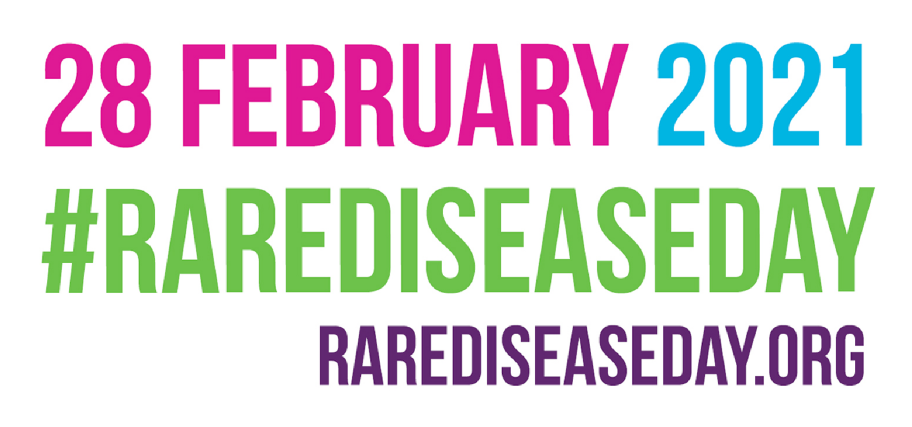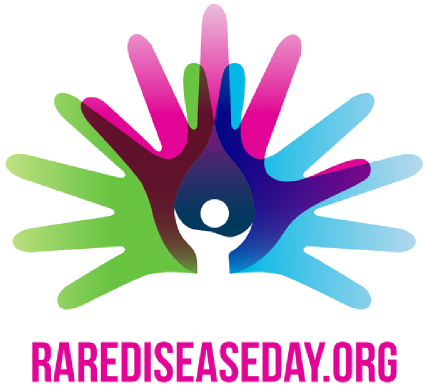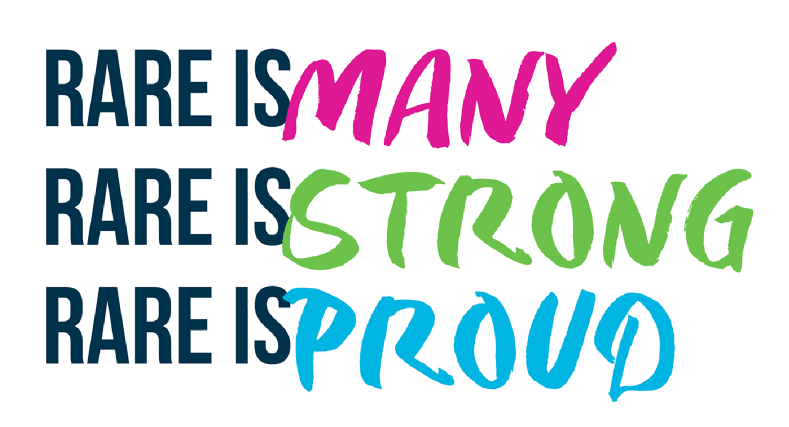We are advancing therapeutics to provide functional improvement for people living with genetically driven neuromuscular diseases. By utilizing our FORCETM platform, we believe we will be able to deliver targeted therapies to muscle and the central nervous system (CNS) to address the root cause of disease.
We have a broad pipeline, including clinical programs for myotonic dystrophy type 1 (DM1) and Duchenne muscular dystrophy (DMD), and preclinical programs for facioscapulohumeral muscular dystrophy (FSHD) and Pompe disease. Each of these neuromuscular diseases has a profound impact on affected communities around the world.
DYNE-101 an investigational therapeutic for people living with myotonic dystrophy type 1 (DM1)
DYNE-101 is an investigational therapeutic being evaluated in the Phase 1/2 global ACHIEVE clinical trial for people living with DM1. DYNE-101 consists of an antisense oligonucleotide (ASO) conjugated to an antigen-binding fragment (Fab) that binds to the transferrin receptor 1 (TfR1) to enable delivery to muscle and the central nervous system. It is designed to deliver functional improvement in individuals living with DM1 by reducing toxic nuclear DMPK RNA to release splicing proteins and allow normal mRNA processing. DYNE-101 has been granted Breakthrough Therapy, Orphan Drug and Fast Track designations by the U.S. Food and Drug Administration and Orphan Drug designation by the European Medicines Agency for the treatment of DM1.
Learn more about DM1 and DYNE-101
About Myotonic Dystrophy Type 1 (DM1)
Myotonic dystrophy type 1 (DM1) is a rare, progressive, genetic neuromuscular disease with high morbidity and early mortality. DM1 affects ~40,000 people in the U.S. and ~55,000 people in the EU. The severity of symptoms and rate of progression varies.
DM1 Onset
Symptoms can begin at any point in an affected person’s life, depending on the DM1 subtype. Adult-onset DM1 symptoms typically appear between 20 to 40 years of age.
DM1 Cause
DM1 is caused by mutations in the DMPK gene, leading to a widespread disruption of RNA splicing, known as spliceopathy, which drives the multi-system manifestations of the disease.
DM1 Symptoms
People experience a broad spectrum of symptoms, including:
- Muscle weakness throughout the body
- Myotonia, or difficulty relaxing muscles
- Cardiac arrhythmias
- Respiratory issues
- Gastrointestinal dysfunction
- Cognitive impairments, excessive daytime sleepiness, fatigue and dysregulated sleep
DM1 Unmet Therapeutic Need
Although the genetic cause of DM1 is well understood, there are currently no approved disease-modifying treatments for DM1.
DYNE-251 an investigational therapeutic for people living with Duchenne muscular dystrophy (DMD)
DYNE-251 is an investigational therapeutic being evaluated in the Phase 1/2 global DELIVER clinical trial for individuals with DMD who have mutations in the DMD gene that are amenable to exon 51 skipping. DYNE-251 consists of a phosphorodiamidate morpholino oligomer (PMO) conjugated to an antigen-binding fragment (Fab) that binds to the transferrin receptor 1 (TfR1). It is designed to enable the production of near full-length dystrophin in muscle and the central nervous system (CNS) to provide functional improvement. DYNE-251 has received Breakthrough Therapy designation, Fast Track and Rare Pediatric Disease designations from the U.S. Food and Drug Administration (FDA), as well as Orphan Drug designation from the FDA and European Medicines Agency (EMA) for the treatment of individuals with DMD, amenable to exon 51 skipping.
In addition to DYNE-251, Dyne is building a DMD franchise and has preclinical programs targeting other exons, including 53, 45 and 44.
About Duchenne Muscular Dystrophy
Duchenne muscular dystrophy (DMD) is a rare, X-linked and progressive neuromuscular disorder. DMD affects ~12,000 people in the U.S. and ~16,000 in the EU.
DMD Onset
DMD is the most common childhood-onset form of muscular dystrophy. Loss of strength and function typically first appear between 3 and 5 years of age.
DMD Cause
DMD results from mutations in the DMD gene which lead to total absence or nearly undetectable levels of dystrophin protein, essential for muscle structure, function and preservation.
DMD Symptoms
People living with DMD experience a range of symptoms, which may include:
- Progressive muscle weakness that worsens over time, usually beginning in the upper arms, upper legs and pelvic area and progressing to affect the lower legs, forearms, neck and trunk
- Cognitive function impairment and neuropsychiatric disorders (e.g., intellectual disability, learning disability, behavioral difficulties)
- Enlarged calf muscles
- Delays in developing motor skills such as sitting, standing or walking
- Toe walking or waddling gait
- Breathing problems
- Cardiomyopathy, or inflammation of the muscles in the heart
- Varying degrees of cognitive impairment in approximately one third of patients
DMD Unmet Therapeutic Need
There is a significant unmet need for new treatment options that deliver functional improvement.
DYNE-302 a product candidate for people living with facioscapulohumeral muscular dystrophy (FSHD)
DUX4 expression. Dyne has generated extensive preclinical data that demonstrate robust and durable DUX4 suppression and functional improvement in a preclinical in vivo model developed by Dyne.
About facioscapulohumeral muscular dystrophy (FSHD)
FSHD is a rare, progressive, genetic disease caused by a mutation in the DUX4 gene, leading to aberrant DUX4 expression in muscle with consequent damage and loss of function. These restrict daily activities and have a high physical, emotional and financial burden. FSHD affects ~15,000 to 40,000 people in the U.S. and ~20,000 to 50,000 people in the EU.
FSHD Onset
There is wide variability in age of onset with FSHD. Symptoms typically begin to appear in the teen years or early adulthood.
FSHD Cause
Individuals with FSHD carry a genetic mutation that allows the DUX4 gene to be sporadically activated in muscle cells, causing their gradual destruction throughout the body.
FSHD Symptoms
The symptoms of FSHD often emerge first with a loss of facial muscle strength, making it difficult to smile or use a straw. Weakness typically progresses to all major muscle groups including the arms, torso, legs, and abdomen, leading to limited mobility.
FSHD Unmet Therapeutic Need
Although the genetic cause of FSHD is well understood, there are currently no approved disease-modifying treatments for FSHD.
Expansion Opportunities
We intend to utilize our FORCE platform to expand our portfolio by pursuing the development of programs in additional indications, including additional rare skeletal, CNS, cardiac and metabolic muscle diseases. By rationally selecting therapeutic payloads to conjugate with our proprietary antibody and linker, we believe we can develop product candidates to address the genetic basis of additional muscle diseases.
Back to pipelineDYNE-101 an investigational therapeutic for people living with myotonic dystrophy type 1 (DM1)
DYNE-101 is an investigational therapeutic being evaluated in the Phase 1/2 global ACHIEVE clinical trial for people living with DM1. DYNE-101 consists of an antisense oligonucleotide (ASO) conjugated to an antigen-binding fragment (Fab) that binds to the transferrin receptor 1 (TfR1) to enable delivery to muscle and the central nervous system. It is designed to deliver functional improvement in individuals living with DM1 by reducing toxic nuclear DMPK RNA to release splicing proteins and allow normal mRNA processing. DYNE-101 has been granted Breakthrough Therapy, Orphan Drug and Fast Track designations by the U.S. Food and Drug Administration and Orphan Drug designation by the European Medicines Agency for the treatment of DM1.
Learn more about DM1 and DYNE-101
About Myotonic Dystrophy Type 1 (DM1)
Myotonic dystrophy type 1 (DM1) is a rare, progressive, genetic neuromuscular disease with high morbidity and early mortality. DM1 affects ~40,000 people in the U.S. and ~55,000 people in the EU. The severity of symptoms and rate of progression varies.
DM1 Onset
Symptoms can begin at any point in an affected person’s life, depending on the DM1 subtype. Adult-onset DM1 symptoms typically appear between 20 to 40 years of age.
DM1 Cause
DM1 is caused by mutations in the DMPK gene, leading to a widespread disruption of RNA splicing, known as spliceopathy, which drives the multi-system manifestations of the disease.
DM1 Symptoms
People experience a broad spectrum of symptoms, including:
- Muscle weakness throughout the body
- Myotonia or difficulty relaxing muscles
- Cardiac arrhythmias
- Respiratory issues
- Gastrointestinal dysfunction
- Cognitive impairments, excessive daytime sleepiness, fatigue and dysregulated sleep
DM1 Unmet Therapeutic Need
Although the genetic cause of DM1 is well understood, there are currently no approved disease-modifying treatments for DM1.
DYNE-251, an investigational therapeutic for people living with Duchenne muscular dystrophy (DMD)
DYNE-251 is an investigational therapeutic being evaluated in the Phase 1/2 global DELIVER clinical trial for individuals with DMD who have mutations in the DMD gene that are amenable to exon 51 skipping. DYNE-251 consists of a phosphorodiamidate morpholino oligomer (PMO) conjugated to an antigen-binding fragment (Fab) that binds to the transferrin receptor 1 (TfR1). It is designed to enable the production of near full-length dystrophin in muscle and the central nervous system (CNS) to provide functional improvement. DYNE-251 has received Breakthrough Therapy designation, Fast Track and Rare Pediatric Disease designations from the U.S. Food and Drug Administration (FDA), as well as Orphan Drug designation from the FDA and European Medicines Agency (EMA) for the treatment of individuals with DMD, amenable to exon 51 skipping.
In addition to DYNE-251, Dyne is building a DMD franchise and has preclinical programs targeting other exons, including 53, 45 and 44.
About Duchenne Muscular Dystrophy
Duchenne muscular dystrophy (DMD) is a rare, X-linked and progressive neuromuscular disorder. DMD affects ~12,000 people in the U.S. and ~16,000 in the EU.
DMD Onset
DMD is the most common childhood-onset form of muscular dystrophy. Loss of strength and function typically first appear between 3 and 5 years of age.
DMD Cause
DMD results from mutations in the DMD gene which lead to total absence or nearly undetectable levels of dystrophin protein, essential for muscle structure, function and preservation.
DMD Symptoms
People living with DMD experience a range of symptoms, which may include:
- Progressive muscle weakness that worsens over time, usually beginning in the upper arms, upper legs and pelvic area and progressing to affect the lower legs, forearms, neck and trunk
- Cognitive function impairment and neuropsychiatric disorders (e.g., intellectual disability, learning disability, behavioral difficulties)
- Enlarged calf muscles
- Delays in developing motor skills such as sitting, standing or walking
- Toe walking or waddling gait
- Breathing problems
- Cardiomyopathy, or inflammation of the muscles in the heart
- Varying degrees of cognitive impairment in approximately one third of patients
DMD Unmet Therapeutic Need
There is a significant unmet need for new treatment options that deliver functional improvement.
DYNE-302, a product candidate for people living with facioscapulohumeral muscular dystrophy (FSHD)
DYNE-302 is Dyne’s product candidate being developed for people living with FSHD. DYNE-302 consists of an antigen-binding fragment (Fab) that binds to the transferrin receptor 1 (TfR1), conjugated to an siRNA designed to reduce DUX4 expression. Dyne has generated extensive preclinical data that demonstrate robust and durable DUX4 suppression and functional improvement in a preclinical in vivo model developed by Dyne.
About facioscapulohumeral muscular dystrophy (FSHD)
FSHD is a rare, progressive, genetic disease caused by a mutation in the DUX4 gene, leading to aberrant DUX4 expression in muscle with consequent damage and loss of function. These restrict daily activities and have a high physical, emotional and financial burden. FSHD affects ~15,000 to 40,000 people in the U.S. and ~20,000 to 50,000 people in the EU.
FSHD Onset
There is wide variability in age of onset with FSHD. Symptoms typically begin to appear in the teen years or early adulthood.
FSHD Cause
Individuals with FSHD carry a genetic mutation that allows the DUX4 gene to be sporadically activated in muscle cells, causing their gradual destruction throughout the body.
FSHD Symptoms
The symptoms of FSHD often emerge first with a loss of facial muscle strength, making it difficult to smile or use a straw. Weakness typically progresses to all major muscle groups including the arms, torso, legs, and abdomen, leading to limited mobility.
FSHD Unmet Therapeutic Need
Although the genetic cause of FSHD is well understood, there are currently no approved disease-modifying treatments for FSHD.





